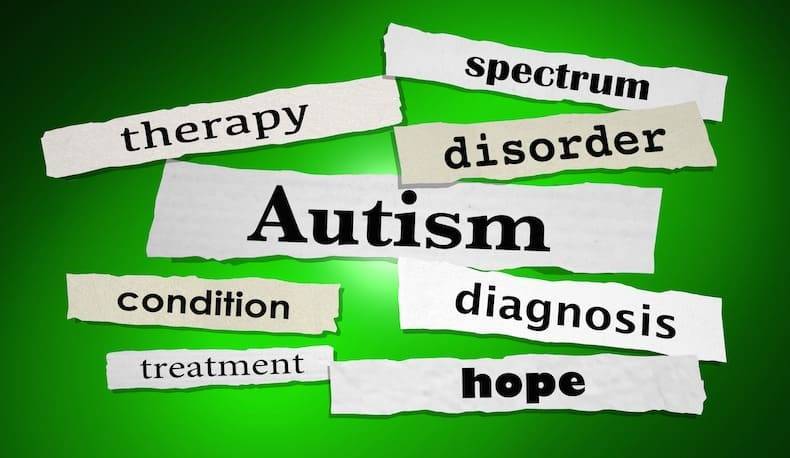
When it comes to understanding ourselves, knowledge is more than power – it’s empowerment. For adults suspecting they might be on the autism spectrum, the path to discovery starts with the diagnostic process for Autism Spectrum Disorder (ASD).
If you’re reading this, you might be on the precipice of this journey. The road ahead is paved with questions, and I’m here to explore them with you.
This article will walk you through the ins and outs of getting assessed for autism spectrum disorder (ASD) as an adult. You’ll learn what to expect at each stage, how to find the right professional, and how to make the most out of the process.
Let’s dive into what the assessment process entails, how to navigate it, and decide if it’s the right step for you.
Understanding the Need for a Diagnosis
If you’re an adult who suspects you may be on the autism spectrum, you likely have many questions about the assessment and diagnosis process. Getting evaluated can be an important step in better understanding yourself and accessing the support you need. However, it’s normal to feel unsure about where to start.
Autism Spectrum Disorder is a neurodevelopmental condition that affects social communication and interaction, as well as restricted and repetitive patterns of behavior. While ASD is often diagnosed in childhood, it can also be present in adults who may have gone undiagnosed or misdiagnosed.

If you’re an adult who suspects you might be on the autism spectrum, you may be wondering if a professional assessment is right for you. Here are some factors to consider:
- Do you relate to the symptoms of ASD? Common symptoms include difficulty with social interactions, sensory sensitivities, and repetitive behaviors.
- Have you experienced challenges in your life that could be related to ASD? For example, have you struggled with relationships, employment, or education?
- Do you feel like you’re different from others and don’t quite fit in? Many adults with ASD report feeling this way.
If you answered yes to any of these questions, an assessment for ASD may be beneficial. A diagnosis can guide you in navigating social complexities and self-discovery in life. It’s important to understand the individual characteristics that make you, you, it’s not about labels.
An accurate diagnosis can be life-changing. It can help you:
- Understand yourself better. An assessment can provide you with a clear understanding of your strengths and weaknesses, which can help you to make sense of your experiences.
- Gain clarity: Getting a clear diagnosis can help you understand the root of lifelong challenges. This insight makes it easier to implement strategies tailored to your needs.
- Get the support you need. A diagnosis can help you to access services and support that are tailored to your individual needs.
- Access support: An official ASD diagnosis often opens doors to accommodations at school or work. It also allows you to connect with resources like social skills classes, vocational rehabilitation, and more.
- Develop self-acceptance: Receiving a diagnosis can provide validation after years of feeling different. It can be an empowering part of your self-discovery journey.
- To plan for the future: Understanding your strengths and needs allows you to advocate for yourself. You can make informed choices to create an environment that sets you up for success.
- Live a more fulfilling life. Understanding and accepting your autism can help you to live a more fulfilling and meaningful life.
- Find tailored strategies for managing symptoms. Improve your overall quality of life and enhance your ability to navigate daily challenges with personalized guidance and support.
- Improve relationships through greater awareness. Better understanding of your social interactions and relationships, leading to improved connections with others.
If you relate to any of these motivations, seeking an assessment may be worthwhile. The diagnostic process itself also provides an opportunity to learn about yourself.
Key Benefits of a Professional Diagnosis
One of the advantages of receiving a diagnosis of ASD is that it can provide clarity and understanding for the individual and their loved ones. You can learn a lot about yourself with an Adult Autism Assessment.
Many adults with ASD have spent years struggling with social communication and sensory processing difficulties without understanding why. A diagnosis can provide a sense of validation and explanation for these challenges. It can also help the person and their loved ones better understand their strengths and weaknesses, which can be useful in developing strategies for success.
Receiving an adult autism diagnosis from a trusted expert provides numerous benefits:
- Clarification of past misunderstandings or misdiagnoses
- A framework for explaining differences in thinking or behavior
- Eligibility for services specifically designed for Adults with Autism Spectrum Disorder
Receiving a diagnosis of ASD can open the door to appropriate support and treatment. Without a diagnosis, an individual may struggle to access resources such as therapy, social skills training, and accommodations in the workplace or academic settings. A diagnosis can also help individuals and their loved ones connect with support groups and community resources.
Disadvantages of Diagnosis to Consider
Receiving a diagnosis of ASD also has its disadvantages. One of the biggest concerns is the stigma that still surrounds autism. Many people with ASD report experiencing discrimination and negative attitudes from others, including employers, educators, and healthcare professionals. A diagnosis can also impact a person’s self-esteem and sense of identity. Some people may struggle with feelings of shame, embarrassment, or rejection after receiving a diagnosis.
Another disadvantage of receiving a diagnosis of ASD is the potential impact on insurance coverage and employment. Some people may face challenges obtaining health insurance or may be denied coverage for treatments related to their ASD diagnosis. Employers may also discriminate against people with ASD, either intentionally or unintentionally, which can impact job prospects and advancement opportunities.
Despite these challenges, the benefits of receiving a diagnosis of ASD often outweigh the disadvantages. With appropriate support and treatment, many people with ASD can learn to manage their symptoms and thrive in their personal and professional lives. If you are an adult who suspects that you may have ASD, it is important to seek out a specialist who can conduct a thorough evaluation and provide an accurate diagnosis.
What Does The Diagnostic Process for Autism Spectrum Disorder Involve?
The adult Autism diagnosis process typically begins with a thorough evaluation that includes interviewing you, observing your behavior and communication, and completing standardized assessments. The assessments may include instruments such as the Autism Spectrum Quotient (AQ) and the Ritvo Autism Aspergers Diagnostic Scale-Revised (RAADS-R) which are specifically designed to assess ASD symptoms. I also routinely send written questions to a family member, close friend, or partner for an additional perspective.
The assessment of Autism Spectrum Disorder in adults involves several steps designed to understand your unique experiences and challenges.
Initial Consultation
The very first step – a conversation that seeks to understand your reasons and identify potential ASD traits. Often starting with a video consultation for an autism assessment, this initial step allows professionals to gather basic information about your concerns and history.
Comprehensive Adult ASD Assessment
If screening points towards a likelihood of ASD, an extensive and nuanced assessment follows.
This extensive adult ASD diagnostic assessment typically involves:
- A life-spanning review: Bringing together childhood memories with adult experiences. Discuss your developmental history, current challenges, and goals.
- Cognitive and psychological evaluations: These help assess traits commonly associated with ASD and understand how ASD might interplay with your thinking and emotional patterns.
- Holistic support system analysis: Assessing your social and professional support structure and your everyday functional needs.
Steps in the comprehensive adult ASD assessment process:
- Clinical interview: A mental health professional will ask you about your symptoms, your personal history, and your family history.
- Observation: The professional may observe you in different situations to assess your social interactions and behaviors.
- Psychological testing: You may be asked to complete psychological tests to assess your cognitive abilities, social skills, and adaptive functioning.
- Analysis and Diagnosis: The therapist compiles all the data and analyzes it to determine if you meet the criteria for an autism diagnosis.
- Feedback Session: Discuss findings from the comprehensive adult ASD diagnostic assessment. You’ll review the findings together and discuss the next steps.
The diagnostic process can take several weeks, but it is important to be patient and thorough. While it may seem arduous, this comprehensive process allows for an accurate, detailed diagnosis. It provides the opportunity to discuss support strategies tailored to your needs. A proper diagnosis is essential for getting the support and services you need.
The Pivotal Role of Video Consultation
For those seeking flexibility, convenience, or simply a way to start the process from the comfort of their homes, video consultation for autism assessment emerges as a crucial tool.
- Video Consultation for Autism Assessment: Balance convenience with necessity. It’s a bridge between your concerns and a specialist’s insights.
Post-Diagnosis Support
People who have received an official diagnosis can get help through post-diagnosis support. This support may include joining local support groups for adults on the spectrum. It is also important to look into therapies designed for those diagnosed later in life, like occupational therapy, cognitive-behavioral therapy (CBT), or insight-oriented talk therapy. It is a good idea to check out workplace accommodations, if applicable, to make sure the environment is supportive and inclusive.
After receiving an official diagnosis:
- Connect with local support groups specifically geared toward adults on the spectrum.
- Explore therapies such as occupational therapy or talk therapy tailored toward individuals diagnosed later in life.
- Investigate workplace accommodations if applicable.
Making the Choice: Is Adult Autism Diagnosis for Me?
Deciding to pursue an adult autism diagnosis is deeply personal. It’s about aligning with oneself and might be the catalyst for growth and self-acceptance. An extensive adult ASD diagnostic assessment could be the compass you need.

If you’re interested in getting an assessment for ASD, there are a few things you can do:
- Talk to your doctor or mental health professional. They can refer you to a specialist who can conduct an assessment.
- Do some research online. There are many resources available online that can help you to learn more about ASD and the diagnostic process.
- Contact a local autism organization. They can provide you with information and support and may be able to help you find a qualified professional.
Understanding and Overcoming Barriers
Despite increased recognition of adult ASD assessments’ importance, barriers remain such as stigma around mental health issues or lack of insurance coverage which could limit access to these vital services.
Some Strategies for Success Include:
- Seek support from autism advocacy groups, online forums, or local support networks to connect with individuals who have similar experiences and who can provide guidance and understanding.
- Engage in open conversations with friends, family, and colleagues about autism to raise awareness and address misunderstandings. Encourage them to ask questions and learn more about your experiences.
- Promote inclusivity and acceptance by participating in events, campaigns, or activities that aim to spread awareness and celebrate the diversity of neurodiversity, including autism.
- Advocating within workplaces or educational institutions about neurodiversity acceptance
If you’re an adult who suspects you might be on the autism spectrum, don’t hesitate to seek an assessment. A diagnosis can be life-changing, and it can help you to live a more fulfilling and meaningful life.
Embracing Your Unique Neurology
Receiving an autism diagnosis as an adult can be a pivotal moment. It provides validation and helps you move forward with self-understanding, confidence, and the right support. While each person’s journey is unique, assessment opens the door to embracing your neurodiversity. With the right tools, you can learn to navigate the world in a way that honors your authentic self.
Making the Most of Your Evaluation
Here are some tips to help you get the most value from your autism assessment experience:
- Track symptoms ahead of time: Documenting specific examples of social, communication, sensory, and behavioral challenges will help paint a vivid picture.
- Come prepared with questions: Make a list of things you want to understand about your neurology and what support options exist.
- Bring a support person: Having someone you trust to accompany you can help if you feel anxious. They can take notes too.
- Get an Online Consultation: A virtual consultation is convenient and accessible and eliminates barriers such as transportation difficulties or discomfort with in-person interactions.
- Discuss accommodations: If you have sensitivities, share them so the assessor can modify aspects like lighting or seating to make you comfortable.
- Be open: Share your story fully and honestly. This allows the clinician to gain true insight into your daily experiences.
- Request a debrief: Schedule time after the final diagnosis to discuss what it means for you and your next steps.
The diagnostic process can be emotional and intense. However, approaching it prepared and collaboratively allows for the most empowering experience. Remember that each individual’s experience is unique; there isn’t one type of person on the spectrum.
Choosing the Right Professional
Select someone experienced in the field who offers an extensive adult ASD diagnostic assessment – it makes all the difference.
It’s crucial to choose an evaluator with expertise in diagnosing autism spectrum disorder in adults.

Key factors to look for include:
- Specialization in ASD: Seek out professionals whose practice focuses specifically on autism spectrum disorder. They should have advanced training and years of experience in the field.
- Knowledge of adult presentation: Autism can manifest differently in adults than children. Make sure they thoroughly understand adult characteristics.
- Diagnostic expertise: Confirm they are skilled in the full diagnostic process, including using gold-standard assessment tools.
- Warm demeanor: The evaluation involves a deep discussion of personal experiences. It’s important to feel comfortable opening up to your assessor.
Tailoring the Process in California
California offers a variety of resources for adults seeking an assessment for Autism Spectrum Disorder and professionals are increasingly recognizing the need to provide tailored services to adults with ASD due to growing awareness.
Contact me for a virtual ASD assessment and diagnosis
If you’re ready to get clarity on whether you are on the spectrum, I offer comprehensive autism assessments for adults. My evaluations are thorough yet compassionate. If you are in California, I offer virtual assessments for your convenience. Contact me today to get started. I look forward to helping guide you on your path to self-discovery.
I am a licensed clinical psychologist with extensive experience in diagnosing and treating ASD in adults. I offer comprehensive assessments that include a clinical interview, observation, and psychological testing. I also provide individual and group therapy for adults with ASD.
In Summary: The Path to a Confident Self
An adult autism spectrum disorder assessment can be more than identifying traits; it’s about piecing together the narrative of your life with clarity and compassion. It’s about empowering yourself to navigate life with newfound understanding and confidence.
In addition to seeking a professional diagnosis, there are several self-assessment tools available online that can help you determine whether you may have ASD symptoms. These tools are not a substitute for a professional evaluation, but they can provide useful information and help you decide whether to seek a diagnosis. Some examples of online self-assessment tools include the Autism Quotient (AQ), and the Ritvo Autism Asperger Diagnostic Scale-Revised (RAADS-R).
It is important to keep in mind that receiving a diagnosis of ASD is not a guarantee of success or happiness. While a diagnosis can provide important insights and resources, it is ultimately up to you to decide how to use this information. Some people may choose to embrace their ASD diagnosis as part of their identity, while others may prefer to focus on their strengths and abilities. The important thing is to find the path that feels right for you.
Embarking on an Assessment of Autism Spectrum Disorder in Adults can seem daunting but remember that knowledge is power—understanding yourself better paves the way towards living a more authentically aligned life catered to personal needs and strengths!
If reading this has sparked curiosity and consideration regarding where stand within the spectrum reach out today!
Dr. Kenneth Roberson is an Autism Spectrum Disorder psychologist offering Assessment of Autism Spectrum Disorder in Adults (Throughout California) for over 30 years.




